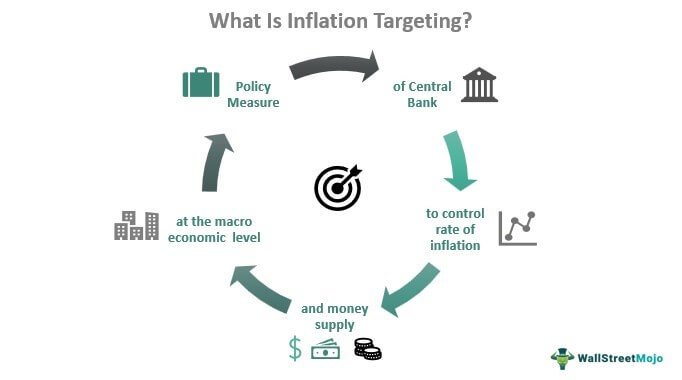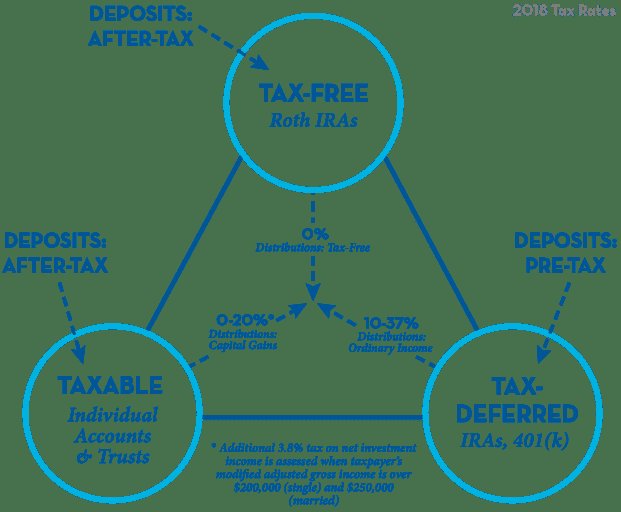Are you struggling to keep track of your business expenses? Well, look no further! In this article, we will share some valuable tips for keeping track of business expenses effectively. Whether you’re a solopreneur or managing a team, it’s crucial to have a streamlined system in place to monitor and manage your expenses. By implementing these simple yet powerful strategies, you can gain control over your financial records and make informed decisions. So, let’s dive right in and discover the secrets to maintaining a healthy financial outlook for your business.
Tips for Keeping Track of Business Expenses
Keeping track of business expenses is crucial for the success and growth of any business. It not only helps you manage your cash flow but also ensures that you are maximizing your tax deductions and staying compliant with financial regulations. In this article, we will explore some effective tips for keeping track of your business expenses, so you can stay organized, make informed financial decisions, and ultimately thrive in your business.
Create a Separate Business Bank Account
One of the first steps you should take to keep track of your business expenses is to open a separate bank account dedicated solely to your business. This not only simplifies your accounting process but also helps you differentiate between personal and business expenses. Here are some benefits of having a separate business bank account:
- Easy tracking: With a separate account, all your business transactions will be in one place. This makes it much easier to track and categorize your expenses.
- Clean financial records: Having a dedicated account helps you maintain clean and accurate financial records, making it easier during tax season or when facing an audit.
- Professionalism: Separating your personal and business finances shows professionalism, which can be crucial when dealing with clients, vendors, or potential investors.
Implement an Expense Tracking System
Once you have a separate business bank account, it’s essential to implement an efficient expense tracking system. This system will help you record, categorize, and analyze your business expenses effectively. Here’s how you can create an expense tracking system:
Choose the Right Tools
There are various tools available to help you track your business expenses, from simple spreadsheets to dedicated expense tracking software. Consider your business needs and budget when selecting the right tool for you. Some popular options include:
- Excel or Google Sheets: These spreadsheet software provide a basic yet effective solution for tracking expenses. You can create your own expense template or find ready-made templates online.
- Expense tracking apps: Mobile apps like Expensify, Receipt Bank, and Shoeboxed offer convenient ways to track expenses on the go. They allow you to capture receipts, categorize expenses, and sync data with your accounting software.
- Accounting software: If you’re looking for comprehensive expense tracking along with other accounting features, consider using accounting software like QuickBooks, Xero, or FreshBooks. These platforms provide advanced expense tracking capabilities and seamless integration with your bank accounts.
Establish Expense Categories
Organizing your expenses into categories makes it easier to analyze and report on your spending. Common expense categories include:
- Office supplies
- Travel and transportation
- Marketing and advertising
- Utilities
- Professional fees
- Insurance
Customize these categories based on your specific business needs. Be consistent in assigning expenses to the correct category to maintain accuracy in your financial records.
Set Up a Filing System
Maintaining physical or digital copies of your expense receipts is crucial for documentation and potential audits. Create a well-organized filing system to store and retrieve receipts easily. Here are some tips:
- Physical receipts: Use labeled folders or envelopes to categorize and store physical receipts. Make sure to include the date, purchase details, and amount on each receipt.
- Digital receipts: If you receive digital receipts, create folders on your computer or use cloud storage platforms like Google Drive, Dropbox, or Evernote to store them securely. Consider using a scanning app to convert physical receipts into digital format.
Track Expenses in Real Time
To manage your expenses effectively, it’s essential to track them in real time. Waiting until the end of the month or quarter can lead to overlooked expenses or errors in your records. Here are some ways to track expenses promptly:
Use Mobile Expense Tracking Apps
Mobile expense tracking apps mentioned earlier can be a game-changer for real-time expense tracking. These apps allow you to snap pictures of receipts, record expenses, and categorize them on the spot. With their convenient features, you can stay organized, even when you’re on the go.
Link Bank Accounts and Credit Cards
If you’re using accounting software, linking your bank accounts and credit cards can automate expense tracking. This integration enables transactions to be imported directly into your accounting software, saving you time and reducing manual data entry errors.
Set Up Email or Text Alerts
Many banks and credit card providers offer email or text alerts for transactions. By setting up alerts for your business accounts, you will receive instant notifications whenever there is activity, allowing you to monitor and track your expenses in real time.
Review and Reconcile Regularly
Tracking your business expenses is not a one-time process. Regularly reviewing and reconciling your expenses is crucial to maintain accuracy and identify any discrepancies. Follow these steps to review and reconcile your expenses:
Review Your Bank Statements
Review your bank statements regularly to ensure all transactions are accurate and accounted for. Look for any unfamiliar or unauthorized transactions that might indicate fraud or errors. Additionally, compare your bank statements with your expense tracking records to ensure consistency.
Reconcile Accounts Monthly
Reconciliation involves comparing your expense tracking records with your bank statements to identify any discrepancies. This process helps you catch errors, missing transactions, or duplicate entries. Make it a habit to reconcile your accounts at least once a month to maintain financial accuracy.
Resolve Discrepancies Promptly
If you come across any discrepancies during the reconciliation process, take immediate action to resolve them. This may involve contacting your bank, reviewing receipts, or investigating any potential errors. Promptly addressing discrepancies will ensure the accuracy of your financial records.
Track Mileage and Business Travel Expenses
For businesses that involve travel or transportation, tracking mileage and related expenses is vital. This can help you claim tax deductions and accurately allocate travel expenses. Here’s how to keep track of mileage and business travel expenses:
Maintain a Travel Log
Keep a logbook or use a mileage-tracking app to record your business-related travel. Include details such as the date, purpose of the trip, starting and ending locations, and the number of miles driven. This information will be valuable when calculating deductions or reimbursing employees for mileage.
Track Vehicle Expenses
In addition to mileage, tracking vehicle-related expenses is essential. This includes fuel, repairs, maintenance, insurance, and any other costs associated with your business vehicles. Save receipts and record these expenses accurately in your tracking system for better financial visibility.
Stay Organized for Tax Purposes
Properly tracking your business expenses is essential when it comes to tax season. Being organized can save you time, reduce stress, and ensure you claim all eligible deductions. Here are some tips to stay organized for tax purposes:
Keep Separate Files for Each Tax Year
Maintain separate physical or digital files for each tax year. This will help you easily access the necessary documents when preparing your tax returns or during an audit. Label each file with the tax year and include all relevant expense receipts, bank statements, and financial reports.
Know the Tax Deductions You Qualify For
Familiarize yourself with the tax deductions you qualify for as a business owner. This includes deductions for business-related travel, meals and entertainment, home office expenses, and more. Keeping track of these expenses throughout the year will ensure you don’t miss out on potential tax savings.
Consult with a Tax Professional
If you’re unsure about tax regulations or need assistance with your taxes, consider consulting with a tax professional. They can provide valuable advice, help you navigate complex tax laws, and ensure you maximize your deductions while staying compliant.
Train and Educate Your Team
In businesses where multiple team members incur expenses, it’s essential to train and educate them on the importance of proper expense tracking. Here’s how you can ensure everyone is on the same page:
Hold Training Sessions
Conduct training sessions or workshops to educate your team on how to track expenses effectively. Provide them with the necessary tools, such as expense tracking templates or mobile apps, and demonstrate the process step-by-step. Clear communication and training will help minimize errors or misunderstandings.
Set Clear Expense Policies and Guidelines
Establishing clear expense policies and guidelines ensures consistency and avoids any misuse of company funds. Clearly communicate what expenses are eligible for reimbursement, the submission process, and any supporting documentation required. Regularly review and update these policies as needed.
Use a Centralized Expense Management System
Implementing a centralized expense management system can streamline the tracking and approval process. Cloud-based software like Expensify, Concur, or Zoho Expense allows employees to submit expenses, attach receipts, and track their reimbursement status. Such systems promote transparency, reduce paperwork, and simplify expense reporting.
Regularly Analyze and Evaluate Expenses
Tracking your business expenses goes beyond simply recording them. Regularly analyzing and evaluating your expenses allows you to identify areas for improvement, optimize spending, and make informed financial decisions. Here are some steps to effectively analyze your expenses:
Compare Actual Expenses to Budget
Compare your actual expenses to your budgeted amounts. This will help you identify any overages or cost-saving opportunities. If you consistently exceed your budget in certain categories, it might be worth reevaluating your spending habits or seeking ways to reduce costs.
Identify Cost Patterns and Trends
Analyze your expense data to identify any patterns or trends. Are there any expenses that consistently increase or decrease over time? Are there certain months or seasons where expenses spike? Understanding these trends can help you forecast and plan for future expenses more accurately.
Look for Cost-Saving Opportunities
By analyzing your expenses, you may identify areas where you can cut costs or find more cost-effective alternatives. For example, renegotiating vendor contracts, exploring bulk discounts, or switching to energy-efficient solutions can help reduce expenses and boost your bottom line.
In conclusion, keeping track of business expenses is essential for financial management and success. By following the tips mentioned in this article, you can establish an efficient expense tracking system, stay organized, maximize tax deductions, and make informed financial decisions. Remember, effective expense tracking leads to better financial visibility and ultimately contributes to the growth and profitability of your business.
Tips and Tools for Tracking Deductible Business Expenses for Taxes (and beyond!)
Frequently Asked Questions
Frequently Asked Questions (FAQs)
How can I keep track of my business expenses effectively?
To keep track of your business expenses effectively, follow these tips:
What are some tools or software I can use to track business expenses?
There are several tools and software available for tracking business expenses, including popular options like QuickBooks, Xero, and Expensify.
Should I separate personal and business expenses?
Yes, it is highly recommended to separate personal and business expenses. This will help you maintain accurate financial records and simplify tax reporting.
What are some common expense categories I should create?
Common expense categories for businesses include office supplies, travel expenses, utilities, marketing/advertising costs, employee wages, and professional services (like legal or accounting fees).
How often should I review my business expenses?
It is recommended to review your business expenses on a regular basis, such as monthly or quarterly. This will help you identify any discrepancies, track spending patterns, and make informed financial decisions.
What is the best way to store and organize receipts?
Digitally storing receipts is often the most convenient way. You can use mobile apps or specialized expense tracking tools to capture and store receipts. Alternatively, you can keep physical copies in labeled folders or envelopes.
What information should I include when recording an expense?
When recording an expense, include the date, amount, vendor name, description of the expense, and the category it belongs to. Additional details like payment method or any relevant notes can also be included.
How can I ensure accuracy in my expense tracking?
To ensure accuracy in expense tracking, be diligent in documenting all expenses, keep a systematic record-keeping process, reconcile your records with bank statements regularly, and consider periodic audits or reviews. Using expense tracking software can help automate and streamline the process.
Final Thoughts
In conclusion, effectively tracking business expenses is essential for maintaining financial transparency and optimizing profitability. By implementing these tips for keeping track of business expenses, you can ensure accurate records and make informed financial decisions. First, create a dedicated system for organizing and categorizing receipts, invoices, and financial documents. Second, utilize expense tracking software or mobile apps to easily manage and monitor expenses on the go. Additionally, regularly review and reconcile financial statements to identify any discrepancies or potential areas of improvement. With these strategies in place, you can maintain control over your business finances and maximize your overall success.



